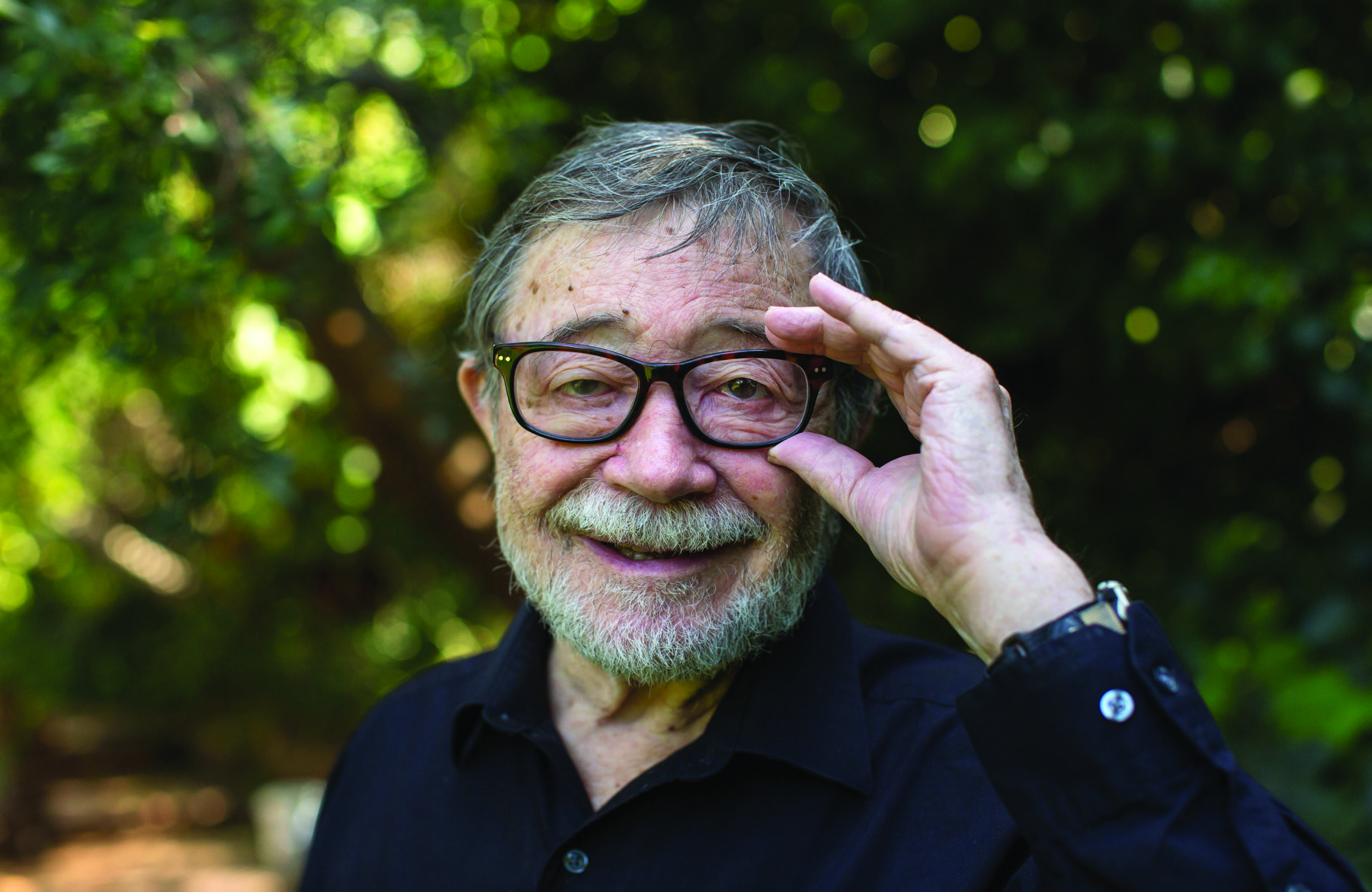 Judea Pearl an Israeli-American computer scientist and philosopher, best known for championing the probabilistic approach to artificial intelligence and the development of Bayesian networks at his home in Encino, California. PHOTOGRAPH BY MONICA ALMEIDA
Judea Pearl an Israeli-American computer scientist and philosopher, best known for championing the probabilistic approach to artificial intelligence and the development of Bayesian networks at his home in Encino, California. PHOTOGRAPH BY MONICA ALMEIDA The Carnegie Corp. of New York has selected UCLA professor Judea Pearl as one of America’s “Great Immigrants,” and as is his wont, the Israeli-born computer scientist greeted this latest encomium with an unorthodox observation, noting that without the estimated 400,000 to 500,000 Israeli immigrants in the United States, American Jewry would lose its Jewish identity in two generations. He added that the Israelis “will save American Jewry from committing identity suicide.”
To buttress this declaration, Pearl noted the cultural impact of America’s Israeli community as organic carriers of biblical stories, Jewish history and the saga of Israel’s modern rebirth.
He also cited that in Jewish American households, the names of Jewish heroes tend to be those of former Israeli prime ministers David Ben-Gurion, Yitzhak Rabin and Golda Meir, and that without the Israeli communities in New York, Los Angeles and other major cities, the process of assimilation by American Jews would be greatly accelerated.
The Carnegie announcement cited Pearl’s “transformative contribution to artificial intelligence, human reasoning and the philosophy of science.” Among other honors, Pearl received the A.M. Turing Award in 2011, dubbed the Nobel Prize in computing.
The list of noted immigrants and their contributions to American life and democracy has been compiled since 2006, drawing inspiration from Scottish immigrant Andrew Carnegie, who established the charitable foundation bearing his name in 1911 to do “real and permanent good in this world.”
This year’s list highlights the work of millions of immigrants in the global health crisis as COVID-19 responders, noted Celeste Ford, director of external relations at the Carnegie Corp. “A third of the honorees are helping the recovery by serving as nurses and doctors, as well as scientists who are striving to find effective treatments and vaccines,” she said.
Another Jewish immigrant known for his off-beat innovations also made the list: Art Spiegelman, author of the graphic novel “Maus: A Survivor’s Tale.” He was born Itzak Avraham Ben Zeev in Stockholm, the son of Polish Jewish Holocaust survivors, whose experiences Spiegelman interpreted by casting the Jews as mice and the Germans as cats.
“Remember that to an outside observer, silence is interpreted as an admission of guilt.” — Judea Pearl
When Pearl is not deep in his research, or explaining it, most recently in “The Book of Why: The New Science of Cause and Effect,” he is working with his wife, Ruth, and their two daughters at the Daniel Pearl Foundation, named for the couple’s son who was kidnapped and executed in Pakistan by Islamic extremists in 2002, while reporting for The Wall Street Journal.
Rather than sinking into lifelong embitterment or swearing revenge, the Pearls decided to channel the legacy of their son into a global organization to perpetuate Daniel’s ideals of free journalism, love of music and dialogue between East and West.
Pearl also is a vocal defender of Israel and Zionism, frequently admonishing the UCLA administration for what he considers its failure to define and defend Israeli students as a distinct ethnic group when attacked by slurs and racial labels. In one drawn-out struggle, Pearl failed to persuade UCLA to condemn a guest lecturer from another university, who labeled Zionists as “white supremacists.”
Pearl summarized his credo in his exhortation last year at a special graduation ceremony for Jewish students at UCLA. “We should not beg for safe space [on campus] but create one through assertiveness and our just cause,” Pearl said. “He who does not defend his identity from slander cannot expect to be respected. Remember that to an outside observer, silence is interpreted as an admission of guilt.”
He went on to say, “The term anti-Semitism connotes submissive begging for protection and should be replaced by a fighting word — Zionophobia — the irrational fear of a homeland for the Jewish people. It rhymes with Islamophobia, on purpose, of course. When you call someone a Zionophobe, it means if you deny my people’s right to a homeland, something is wrong with you not me.
“Jewish students,” noted, “will regain respect only when Zionophobia becomes the ugliest word on campus. It depends on us. If we use it often enough, it will become the ugliest.”























 More news and opinions than at a Shabbat dinner, right in your inbox.
More news and opinions than at a Shabbat dinner, right in your inbox.